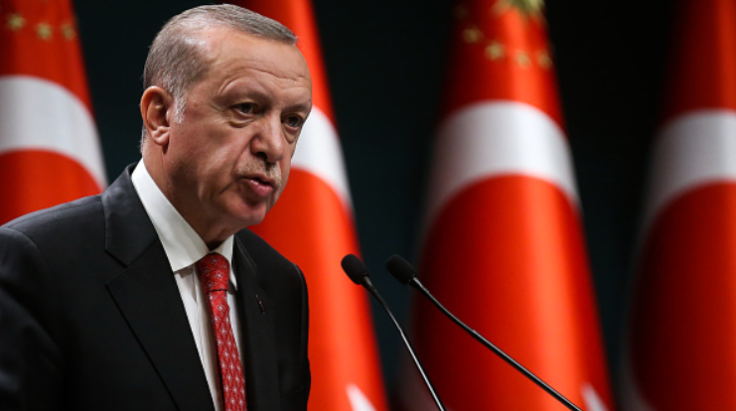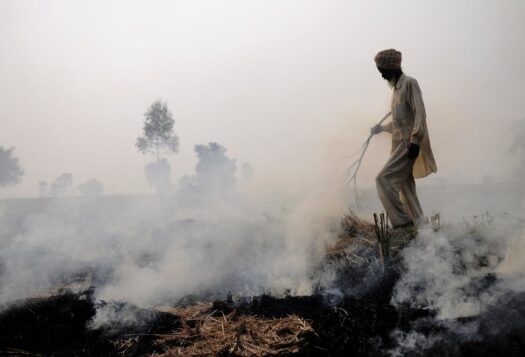
On Friday, Turkey’s President Erdogan announced that Turkey had held its first talks with the Taliban in Kabul, with subsequent reports noting that Turkey and the Taliban were drafting a deal where Turkey and Qatar would operate the Kabul airport in return for Turkey’s recognition of the Taliban as the legitimate government in Afghanistan. As the Taliban assumed control of the country, President Erdogan reiterated that Turkey would do everything in its power to ensure Afghanistan’s stability. Turkey, the Taliban, and the broader international community have pushed to establish a sound and inclusive political setup and an operational airport in the capital as the first step towards stability. In the short- to medium-term, Turkey would be keen to limit the flow of refugees and reduce the possibility of cross-border terrorism to mitigate the impacts of Islamophobia. This would also help to normalize working conditions for many Turkish and other international companies and improve conditions to initiate a global effort for Afghanistan’s reconstruction in the long run. Using its leverage both in the West, through NATO, and with its improved relationships with the key regional countries of Pakistan and China, Ankara appears keen to take on the responsibility of stabilizing Afghanistan.
However, Turkey’s uneasy relationship with the Taliban, ridden by a significant trust deficit, might impact Turkey’s ability to play a decisive role in Afghanistan’s future. Not only have the Taliban refused to visit Turkey for peace talks in the recent past but they have also previously denied the country’s offer to guard and operate the chaotic Kabul airport. Nonetheless, Turkey’s persistent efforts to engage the Taliban, the Taliban’s rising security concerns, and their need for international legitimacy demand improving relations with Ankara. The Taliban have realized that they must signal an openness to the outside world to avoid the same international isolation faced in the 1990s, attract foreign direct investment for Afghanistan’s reconstruction, and demonstrate flexibility in terms of universally accepted norms and rights. Turkey’s Islamic roots, its willingness to take responsibility for stabilizing the war-torn country, and its desire to foster better understanding with Western and regional countries should incentivize the Taliban to work with the country.
Turkey and the Taliban: A Complicated Relationship
One of the main causes of unease between Turkey and the Taliban stems from Ankara’s outsider status and historical leanings toward the Afghan government during the two-decade-long conflict. However, Turkey has consistently maintained a non-combatant role as part of NATO’s mission to maintain a workable relationship and avoid direct confrontation with the Taliban. Nonetheless, Ankara’s historically warm relations with and treatment of Marshal Abdul Rashid Dostum, leader of Afghanistan’s Uzbek community, seems to be the bigger problem for the Taliban. Dostum, a key Taliban adversary, has not only been hosted by Ankara during his exile but frequently visits Turkey.
Turkey’s persistent efforts to engage the Taliban, the Taliban’s rising security concerns, and their need for international legitimacy demand improving relations with Ankara.
Turkey’s soft corner for Dostum is based more on cultural linkages. There is no evidence that Ankara has ever militarily supported a particular faction in Afghanistan but has consistently encouraged economic and political initiatives towards Afghanistan’s peace and prosperity. Nevertheless, Turkey’s commitment to a peaceful, sovereign, independent, democratic and united Afghanistan and its cultural linkages with Afghan Uzbeks and Tajiks has meant that the country has historically been supportive of the previous Afghan government.
Common Concerns: Means to Improve Relations
Before anything, a sound and inclusive political setup is required for a stable Afghanistan. Turkey, in particular, would be keen to ensure that the Taliban are not unjust to Afghan Uzbeks and Tajiks this time. While President Erdogan maintained that “the well-being of [their] kin” is one of Turkey’s key interests in Afghanistan, the country’s Foreign Minister, in conversation with regional partners, has emphasized the importance of forming an inclusive government in Kabul. Despite being in control of almost the entire Afghanistan, the Taliban also seem to be open to the participation of other Afghan factions as they face the challenges of governing the country.

Simultaneously, an operational airstrip in Kabul also remains to be a common challenge. Turkey sees a functioning airport in Kabul as essential to win back the trust of foreigners who have recently fled the country. Beyond the security of citizens of other countries, an operational airstrip is significant for Turkey to ensure the safety of its own citizens engaged in 76 Turkish companies operating across Afghanistan. Between 2003 and 2018, these companies have completed 701 projects, amounting to approximately USD $6.6 billion. The Taliban’s earlier opposition to Turkey’s urge to secure the airport stands to lose both Turkey’s trust and investments. An agreement between the two groups would encourage Ankara to increase its economic services and attract other countries to pursue economic activities in Afghanistan and improve their relationship.
Turkey’s Growing Interests in Afghanistan
President Erdogan has repeatedly expressed concern about hosting Afghan refugees fleeing conflict. Currently hosting close to 3.7 million refugees from the Syrian civil war, Turkey hosts the largest refugee population globally, contributing to intercommunal tensions, violence, and other socioeconomic challenges. There are also fears that, under the guise of refugee status, extremists would infiltrate other countries and resort to terrorism and lone-wolf attacks. It has been one of the main reasons many Western countries are reluctant to receive refugees, and Turkey remains cautious of the hundreds of thousands of refugees fleeing into their borders.
The Taliban has had a record of persecuting religious minorities, suppressing women’s rights, and promoting extremist ideology. Now that the group claims to be much more moderate, it needs to work with countries like Turkey to communicate its moderate values and show this moderation in its conduct. If the Taliban can successfully communicate that they are more tolerant than when previously in power, ordinary Afghans would become more confident and might not opt to flee the country. In turn, this would help transform the Taliban’s image internationally and mitigate the impacts of Islamophobia.
The Taliban manifesting a moderate outlook to the world and halting the brain drain—as many of Afghanistan’s educated youth look to leave the country—would allow Afghans to reconstruct their country. Turkey is not only one of the largest investors in Afghanistan but is also engaged in Afghanistan-focused economic initiatives. Working closely with such a crucial player would help the Taliban build international trust while allowing Turkey to improve conditions to initiate a global effort to reconstruct the heart of Asia. Since great powers’ stakes in Afghanistan’s key location have been one of the main causes of past invasions, there is a need for a player who can coordinate between Western and Eastern economic plans and mitigate geopolitical tensions. Ankara is in a better position than any other country to harmonize China’s and the West’s economic initiatives in Afghanistan and has already endeavored to connect Afghanistan via Central Asia to European markets.
Working closely with such a crucial player would help the Taliban build international trust while allowing Turkey to improve conditions to initiate a global effort to reconstruct the heart of Asia.
The West, led by the U.S., is also seeking a guarantor to maintain a workable relationship with the Taliban and advance their interests in Afghanistan. President Biden has accordingly encouraged Turkey to assume the operations of Kabul airport. Secretary of State Anthony Blinken recently praised Ankara’s efforts in assisting the U.S. with the evacuation, calling Turkey “an important NATO ally and an invaluable partner in the region,” which also reflects that the U.S. wants Turkey to continue playing a key role in Afghanistan.
Conclusion
Turkey’s offer to the Taliban to work closely and support stability to Afghanistan will be contingent on an improved relationship between the two. To date, Ankara maintains a positive approach towards the Taliban with the hope of reciprocity. Forging some understanding to collectively run the operations of Kabul’s airport would be a good start for the Taliban. It would not only improve the war-torn country’s stability but also enhance the Taliban’s relationship with Ankara, which could be crucial to winning the trust of the international community. Afghanistan’s economy cannot run without international support, and that would come with international legitimacy. There is no country demonstrating more keenness than Turkey to stabilize Afghanistan, and its interests in the country converge with the Taliban and the international community. If the Taliban fail to improve ties with Ankara and loses its support, it would be difficult for the group to undertake Afghanistan’s reconstruction and prove its legitimacy to the international community. The result could be a pariah or rogue state forced to undertake weapon smuggling, drugs production, and sheltering internationally designated terrorists to run the economy.
***
Image 1: ADEM ALTAN/AFP via Getty Images


